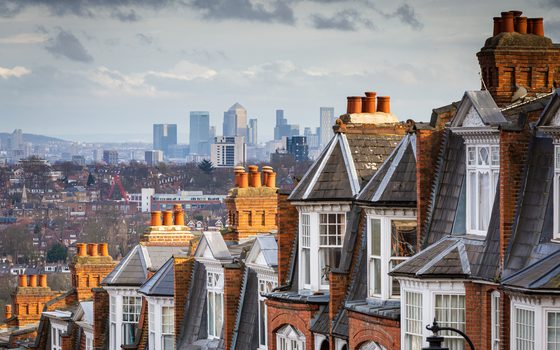Our kids need a Great Homes Upgrade
Children have a right to a decent standard of living. Our draughty homes are harming them.
23 June 2022
Alex Firth is a senior children’s rights coordinator at Human Rights Watch.
Children sleeping in cold beds, family budgets hammered by spiraling energy costs — this is the reality for many people in the UK. A lot of housing in this country is old and draughty. In fact, the UK’s homes lose heat up to three times faster than the more energy-efficient homes across Europe. The lack of proper insulation in our housing has implications for people’s human rights now – and, with our gas boilers burning fossil fuels and contributing to the climate crisis, in the future too.
The Great Homes Upgrade, a civil society initiative begun by the New Economics Foundation, calls for a large-scale programme to improve the UK’s cold, damp, and energy-inefficient homes. The campaign is asking for funding from the central government, managed through local authorities, to upgrade the worst affected homes by installing features such as better insulation and double-glazed windows, as well as replacing dirty fossil-fuel heating like gas boilers with clean alternatives like heat pumps. The UK government should finance this initiative.
The first priority should be those who are most in need: the lowest income families, in social housing or temporary accommodation. I recently interviewed low-income families living in substandard temporary accommodation for a Human Rights Watch report. I heard how the cold consistently and adversely affects children and their families. The poor quality accommodation and inadequate protection from the cold violate people’s right to housing and to an adequate standard of living. In many cases the poor conditions also have a knock-on effect on other rights, including the rights to education and health.
I met a 14-year-old boy and his mother who were placed by their local authority at the top of a tower block in Waltham Forest, north London. When they moved in, only one radiator was working, and there were holes all around the window next to the bed. The boy told me that the cold wind used to blow in at night, so he struggled to sleep in the winter.
In another case, a 15-year-old girl was living in a block of flats in Wandsworth, south-west London. The building had metal components in the wall next to her bed that had rusted and cracked, allowing bitterly cold air to seep in. She began to suffer from breathing difficulties and was eventually diagnosed with pneumonia. Because of the illness, her mother sent her away to live with family elsewhere and she missed two months of school.
High energy costs are a related problem. At the beginning of this year, the government raised the price cap limiting what energy providers can charge by a huge 54% as a response to rising fossil-fuel costs. In May, officials suggested that the cap may increase again by £800 a year, which could push the number of households in fuel poverty up to 12 million. It is difficult to adequately capture the negative impact this will have on household budgets for people with low incomes, but high energy costs already put the human right to an adequate standard of living at risk for millions.
Low-income families I interviewed before the cost of living crisis hit the headlines were already struggling with inadequate benefits. Queuing with their children at the food bank was already a normal part of their lives and now, with the situation likely to worsen, it is undoubtedly children who will bear the brunt of this crisis. One telling revelation is the reporting that families are asking food banks for food that can be eaten cold, as it is too expensive for them to even turn on the hob.
The final and equally pressing argument for upgrading Britain’s homes is the climate crisis. There is little time left – about nine years according to the United Nations climate change panel – to keep global warming to 1.5C and to prevent the worst outcomes of climate breakdown. The next few years will be critical to reaching this goal. Homes are one of the largest sources of carbon emission in the UK, around 20% of total UK emissions. Upgrading them would mean that everyone can live in a warm, comfortable home that doesn’t pollute the planet.
There are multiple reasons that the UK government should be acting now to address these issues. Children deserve to get into bed at night feeling warm and well-fed. The government so far has only offered empty promises or short-term solutions. Upgrading Britain’s homes is a forward-thinking and future-proofing solution. It provides legitimate long-term security to families, not just a temporary fix, and will dramatically improve the lives and rights of children up and down the country.
Image: iStock
Campaigns Great Homes Upgrade
Topics Housing & land






